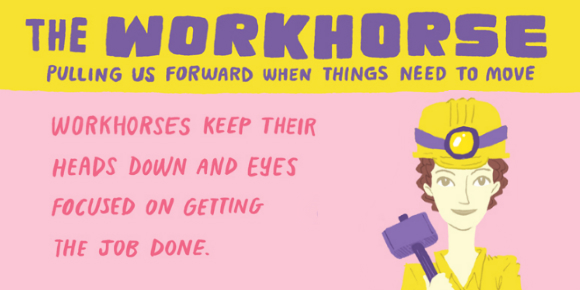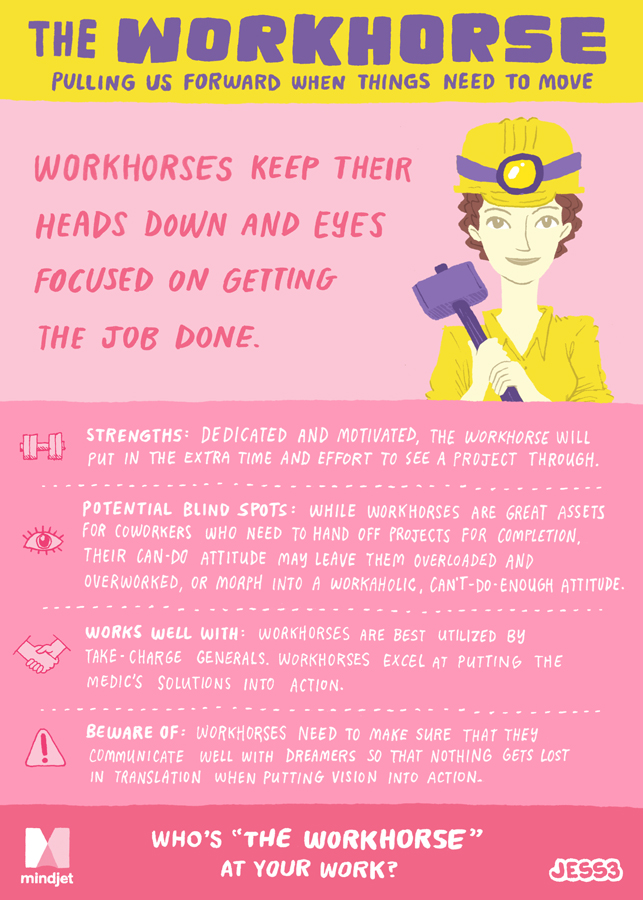Making the most of your work day can be a challenge. Mindjet’s Workology series will help you work smarter and more effectively with your workmates by introducing you to – and providing keys to working with – some common personality types found in any office.
Brian Sokel is the general manager of TLA Entertainment Group, a media and distribution company based in Philadelphia, and he’s the consummate Workhorse. Sokel enjoys nothing more than the feeling of accomplishment from getting the job done.
Independent and motivated, Workhorses like Sokel appreciate the same in others. “I love working with self-motivated people. People who actively seek solutions, uncover flaws in procedure, or develops new ways of thinking or working excite me,” he said.
In a Workhorse’s world, support is key. “I think every manager needs a person whom they can rely on: a person that they can count on to handle almost any task, because as a manager, things always come up that take your attention away from the initial project or mission at hand. That volatility can take up your time, and a manager needs people who can carry through any project and deliver on the goals established.”
Because Workhorses are so laser-focused on what’s in front of them, “they don’t like to fantasize or think about how a project could be different,” explains Myers-Briggs Type Indicator expert Christine Damrose-Mahlmann. For Workhorses, whose personalities fit the bill of Myers-Briggs’ ISTJ (introversion, sensing, thinking, judgment), “Everything needs to be done by the book.” That’s no surprise: according to the Belbin Self-Perception Inventory personality test, which organizes individuals into team roles based on their strengths, Workhorses are most closely aligned with the Implementer role, which focuses on putting well thought out plans into action.
Another thing: Workhorses hate conflict. But expect a Workhorse to call you out if he or she feels that you’re not adequately doing your job. “[Workhorses] may come across as very rigid, but that’s because they believe you should just do the job and not expect anything extra in return,” explains Damrose-Mahlmann.
For a Workhorse, the joy is in the process, and Workhorse leaders want team members that feel the same way. “If at all possible, I believe people need to enjoy what they are doing,” says Sokel. “It’s too easy to fall into the trap of working a job or a position simply because it ‘pays the bills’ or is more convenient than adjusting course and seeking new opportunities. When people truly enjoy the work they do, there is a motivation that cannot be taught, encouraged, or demanded by a manager.”
Ultimately, says Sokel, Workhorses just want to get the most out of their day. “I’m always motivated to engage with the projects in front of me, and more importantly, I really enjoy working with my staff. Together, we’ve created an environment that is creative, productive—and fun.



